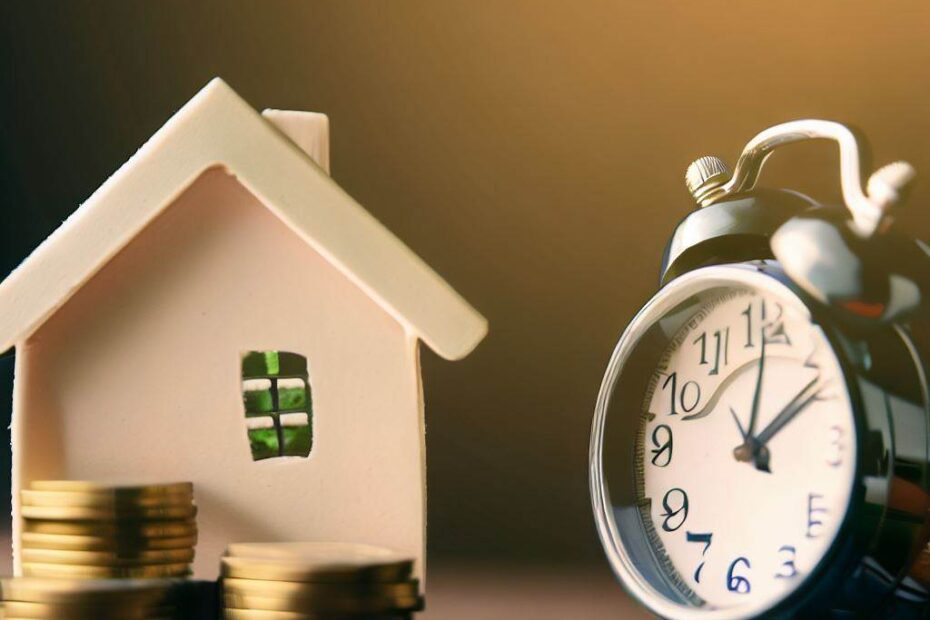The concept of time value of money is an important one to consider when making financial decisions. Essentially, it means that the value of money today is not the same as the value of the same amount of money in the future. This is because money can earn interest over time, meaning that a dollar today is worth more than a dollar in the future.
One major financial decision that many people face is whether to buy or rent a home. The time value of money plays a key role in this decision, as the costs and benefits of buying versus renting can vary considerably depending on how long you plan to stay in the home.
Let’s start by considering the case for buying a home. When you purchase a home, you are essentially investing in an asset that has the potential to appreciate in value over time. While there are no guarantees that your home will increase in value, historically, real estate has tended to appreciate over the long term. If your home does increase in value, you may be able to sell it for a profit down the line, which can be a significant source of wealth.
Another benefit of homeownership is that you have control over your living space. You can make changes to the property, such as renovating or adding on, without needing permission from a landlord. Additionally, owning a home can provide a sense of stability and security, as you know that you have a place to live that is yours.
Of course, there are also drawbacks to buying a home. One major cost to consider is the upfront expense of a down payment. Depending on the price of the home and the lender’s requirements, you may need to save up a significant amount of money before you can even think about buying a home. Additionally, owning a home comes with ongoing costs, such as property taxes, maintenance, and repairs. You’ll need to factor these expenses into your budget when deciding whether buying is right for you.
Now let’s consider the case for renting a home. One major advantage of renting is that you typically don’t need to come up with a large down payment upfront. Instead, you’ll likely just need to pay a security deposit and first month’s rent before moving in. This can make renting a more accessible option for people who don’t have a lot of savings.
Another benefit of renting is that you’re not responsible for any maintenance or repairs on the property. If something goes wrong, such as a leaky roof or a broken appliance, you can simply call your landlord and they’ll take care of it. This can be a major relief for people who aren’t handy or don’t want to deal with the hassle of home repairs.
Of course, there are also downsides to renting. One major one is that you don’t have control over your living space. You may not be able to paint the walls or make other cosmetic changes to the property without your landlord’s permission. Additionally, your rent payments are essentially going towards someone else’s investment, rather than building equity for yourself.
So how does the time value of money factor into this decision? Essentially, if you plan to stay in your home for a long time, buying is likely to be the better option from a financial standpoint. This is because over time, the appreciation of your home can offset the initial costs of purchasing and owning it. Additionally, as you pay down your mortgage, you’ll build equity in the property, which can be a valuable asset down the line.
On the other hand, if you only plan to live in the home for a few years, renting may be the better option. This is because the upfront costs of buying a home, such as the down payment and closing costs, may outweigh the potential benefits of ownership if you’re not planning to stay in the home long enough to see significant appreciation in value.
It’s important to note that everyone’s financial situation is different, and there’s no one-size-fits-all answer to the buy versus rent question. Some people may be better off renting indefinitely, while others may benefit from purchasing a home as soon as possible. Ultimately, the decision comes down to your personal preferences, financial goals, and long-term plans.
In conclusion, when considering the buy versus rent decision, it’s essential to take the time value of money into account. Depending on how long you plan to stay in the home, the costs and benefits of buying versus renting can vary significantly. By carefully weighing the pros and cons of each option and considering your long-term financial goals, you can make an informed decision that works best for you.
P.S. A great pdf to read: https://www.iveypublishing.ca/s/product/time-value-of-money-the-buy-versus-rent-decision/01t5c00000Cwk5mAAB
